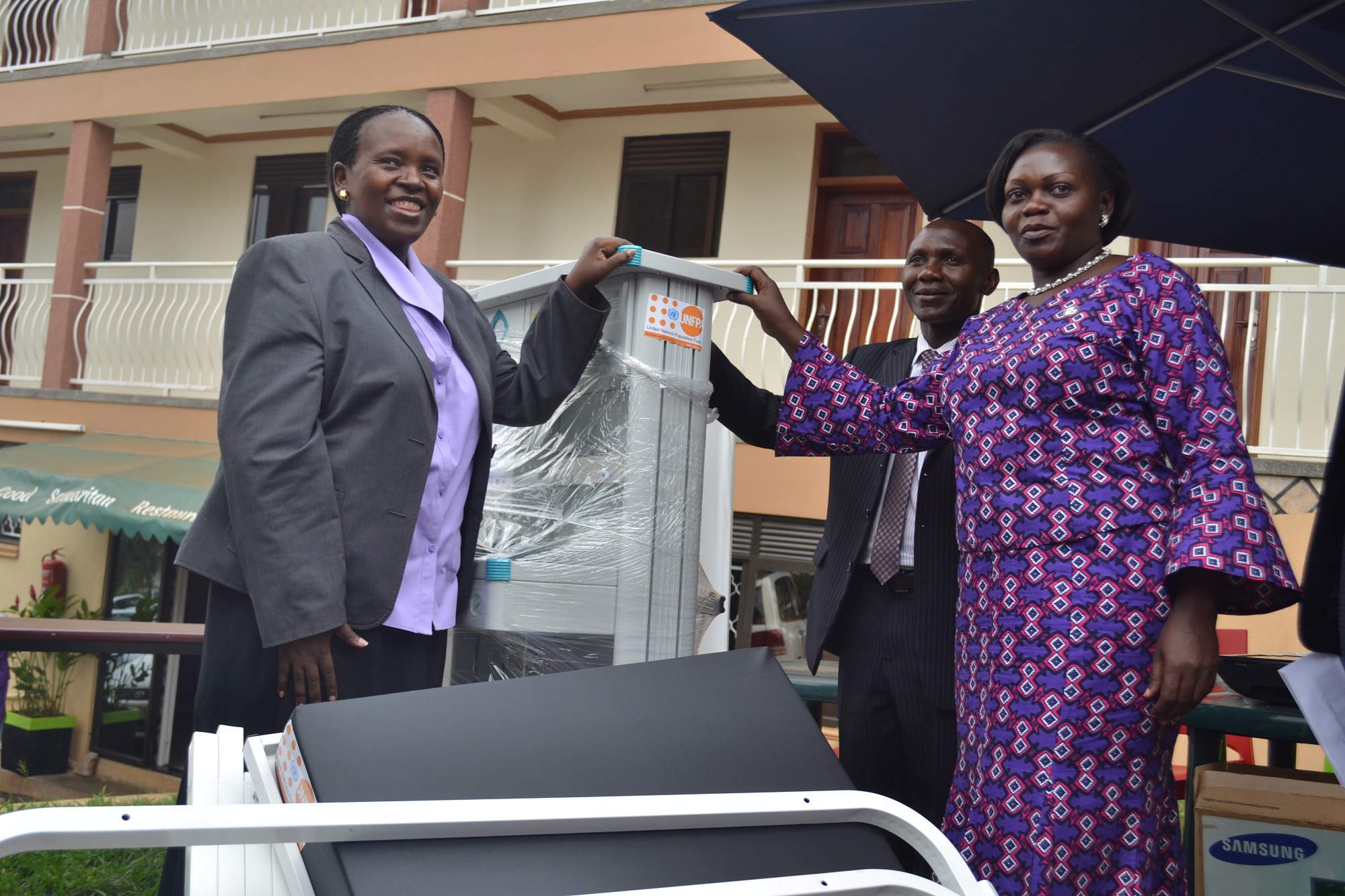On March 12, UNFPA donated an assortment of live-saving medical equipment to the Obstetrics and Gynecology department Uganda's National Refferal Hospital Mulago.
The equipment consisting of fistula surgery equipment, delivery beds, delivery sets, anesthetic machines, faetal heart monitors, newborn resuscitation equipment, teaching aids and two vehicles cost over US$ 183,000 (Shs 500 million). State Minister for Health in charge of Primary Health Care, Hon. Sarah Opendi, received the equipment on behalf of the Ministry of Health during a brief ceremony at Mulago Hospital.
Opendi thanked UNFPA for the support over the last three decades, particularly focusing on maternal and child health. She said the government is committed to improving health care service delivery in the country, but this cannot be done without health workers and the prerequisite infrastructure and equipment in place.
"A lot is being said about the high maternal mortality in this country and I want to thank UNFPA for giving support in human resource and equipment and others. This is something that will really help us improve services for mothers," she said.
While handing over the equipment, Ms. Esperance Fundira, UNFPA Country Representative said that she felt inspired and well assured that this is the right investment. "Ensuring that every woman has access to a skilled, well equipped and motivated midwife before, during and after her pregnancy and most importantly at child birth is the surest way for us to reduce maternal and newborn mortality and morbidity," Fundira said.
The hospital's head of department Obstetrics and Gynecology Josephat Byamugisha thanked and applauded UNFPA for the support and strengthening human resources capacity at the hospital. In 2014, UNFPA boosted the human resource base at the hospital by supporting the recruitment of 12 extra midwives to ensure safe and critical management of expectant mothers for better outcomes and lower maternal mortality.
"We need to recognize UNFPA for this because most of the partners for development are not willing to provide human resource yet human resources - especially midwives - are the most urgent need," Byamugisha said.
He said the support has come at the right time considering that the hospital was becoming overwhelmed with deliveries amidst a shortage of midwives. He said every year, 1,000 babies are born at Mulago. The number of deliveries at the hospital has increased from 20,000 in 2000 to 31,000 in 2014.


